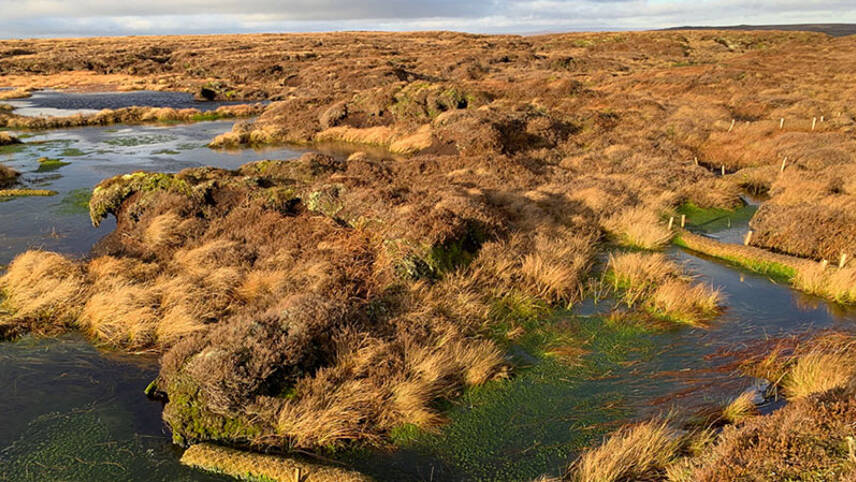Register for free and continue reading
Join our growing army of changemakers and get unlimited access to our premium content

Image: The Great North Bog
The Department for the Environment, Food and Rural Affairs (Defra) has outlined plans to allocate the funding to 12 projects as part of its work to restore 35,000 hectares of peatland in England by the end of this Parliament.
Areas set to benefit include the Great North Bog, which covers some 90% of the upland peatlands in the North of England; the Dorset Heaths; the Lincolnshire Fens and upland peatland in the Forest of Bowland in Cumbria.
Each project is large-scale and will be delivered collaboratively.
Peatlands cover 10% of the UK’s total land area, but Defra estimates that 87% of England’s peatlands are degraded. Key drivers of peatland damage include changing weather patterns, land-use change for business purposes and peat extraction.
Even in their degraded state, England’s peatlands contain more than half of the country’s terrestrial carbon stores. They also provide natural flood defences and water filtration. Restoring them could prove crucial to delivering the UK’s legally binding climate and nature targets.
“Our peatlands hold over half of our terrestrial store of carbon, but with just 1% in a near natural state and soils drying out we must take urgent action to prevent further carbon from being emitted into the atmosphere,” said Environment Minister Rebecca Pow.
Pow said that the £16m announced this week, part of a wider £50m peatland funding commitment, will “drive collaboration and supercharge peatland restoration across the country”.
This time last year, Defra confirmed a ban on bagged compost and other retail products containing peat, set to come into force in 2024.
Global nature recovery funding
The announcement on peat came shortly after the UK confirmed that it will be among the first nations to contribute to a new UN-supported fund for nature restoration across the globe.
The Global Biodiversity Framework Fund was launched at a meeting in Canada last week and is intended to help scale international finance to deliver the UN’s Kunming-Montreal Biodiversity Treaty. The treaty, agreed upon last December, unites more than 190 nations in working to end nature degradation and destruction this decade.
Beyond 2030, the treaty stipulates that nations should work to restore nature at an unprecedented scale and pace.
The new Fund will see funding sent to the regions losing biodiversity the most rapidly and to protect key habitats such as ancient primary forests.
The UK has committed £10m to the new Fund in the first instance. This will form part of its £11.6bn international climate finance pledge, of which £3bn is earmarked for nature.
“As we confront the critical challenge of halting and reversing biodiversity loss around the world, working together has never been more important,” said Nature Minister Trudy Harrison.


As an evacuee during WW2, I recall that “bricks” of peat were a significant fuel in the Somerset village where I was billeted.
I believe that little will have changed over the years, perhaps it is time to stop both burning and using it as a soil “additive”.